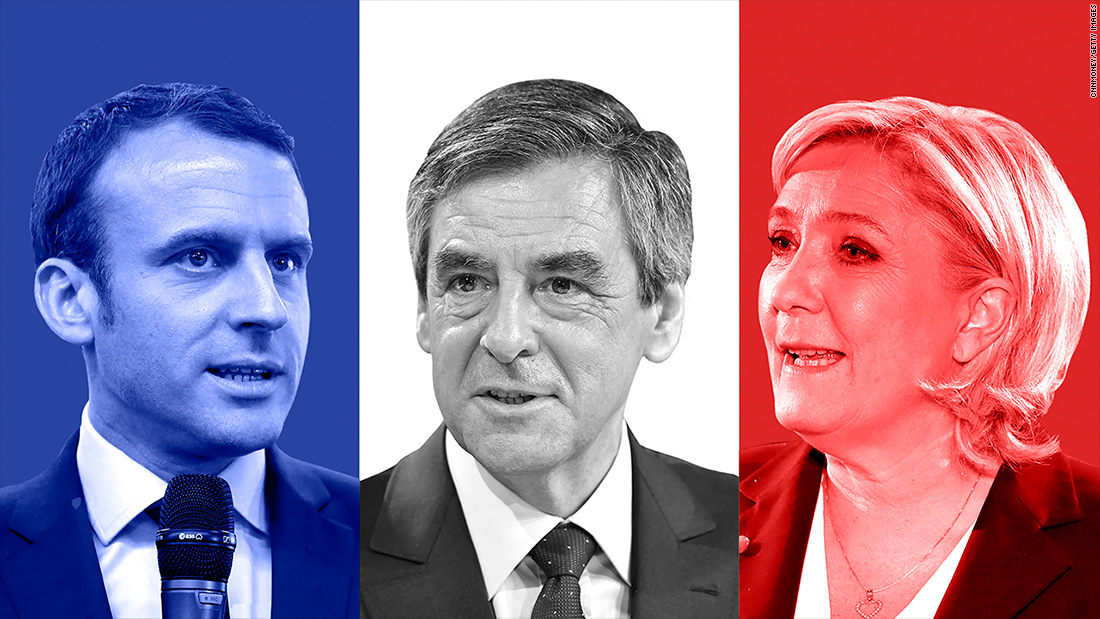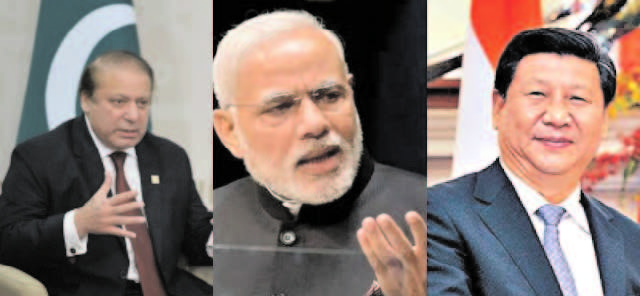
French voters have defied predictions time and again. In 1995, Jacques Chirac, a Gaullist conservative who had been trailing in opinion polls, won the presidency. In 2002, they sent Jean-Marie Le Pen, the far-right, Holocaust-denying leader of the National Front, to the second round, only to defeat him there.
As they prepare to head to the polls on Sunday, predictions are even more difficult. Of the 11 candidates in the fray, four are seen to be leading contenders for the second round on May 7, when the top two face off against each other.
Historically, French politics has been divided between the conservatives and the socialists. This balance between the establishment parties is being tested this time with three ‘outsiders’ among the four leading candidates – independent Emmanuel Macron, the National Front’s Marine Le Pen and leftist Jean-Luc Mélenchon.
Some opinion polls still give a chance to the conservative candidate, François Fillon, but he is mired in a corruption scandal. The Socialists, directionless after five years of François Hollande’s highly unpopular presidency, appear to be out of the race even before polling for the first round begins.
The four-way race offers a picture of the issues that shape the election agenda.
While Mr. Macron promises to launch gradual economic and labor reforms and retain the status quo in foreign policy, Mr. Fillon wants radical reforms, including an overhaul of the labor code and sacking of public servants en masse, and closer ties with Vladimir Putin’s Russia.
Ms. Le Pen, a Eurosceptic, is consolidating her base on anti-immigration and anti-globalization rhetoric, much like Donald Trump did in the U.S. elections last year. Mr. Mélenchon, who surged in the polls in the last weeks of the campaign, stays focused on economic issues with promises to raise public spending and taxes on the rich.
The country’s political and business establishment might prefer the victory of Mr. Macron as the other pro-business candidate is facing corruption allegations. But the outcome is anything but certain, given that a substantial chunk of voters remains undecided and that the kind of anti-establishment anger that helped Mr. Trump and Britain’s pro-Brexit camp remains strong in France as well.
The unemployment rate is over 20% among the youth, while economic growth never really revived after the 2008 financial crisis. Besides, security concerns remain paramount after the terror attacks in Paris and Nice over the past 18 months.
Thursday night’s shooting in Paris that killed a policeman, and was claimed by the Islamic State, exposes how volatile the security situation is – something that Ms. Le Pen’s campaign is trying to cash in on during the final stretch.
In many ways this will be the most crucial election in France’s modern history. Its results will have profound implications not just on French politics but also on the future of the European Union.





Be the first to comment